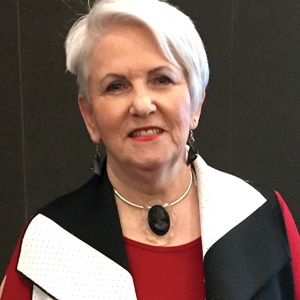Questioning 'The Hate U Give' | Scales on Censorship
A frequently challenged book club pick; insisting on the Pledge of Allegiance
I’m the children’s librarian in a small public library. A mother of a four-year-old has voiced concern that the collection has no books to help young children understand transgender issues. There are books in the teen collection, but I have been hesitant to purchase titles on this topic for younger children. How do I address this mother’s concern without offending other parents?
This parent obviously wants to help her child understand differences, and what better place to turn to than materials in the public library? Please don’t be guilty of self-censorship by refusing to purchase certain books because you fear controversy. Tell the mother that you will order titles on this topic, and notify her when they are available. The American Library Association’s GLBT Round Table administers the Stonewall Book Awards and is an excellent way to identify books for library collections. In the meantime, meet the patron’s need by requesting titles through interlibrary loan. Consider Red: A Crayon’s Story by Michael Hall, It’s Okay To Be Different by Todd Parr, 10,000 Dresses by Marcus Ewert, Morris Micklewhite and the Tangerine Dress by Christine Baldacchino, and GoblinHeart: A Fairy Tale by Brett Axel.
Some parents may question why LGBTQ books are in the children’s room. Remind them that the public library serves the needs of the entire community. Make sure the library’s collection development policy includes a statement about controversial materials. Point to this when patrons question titles in the collection.
The principal at the middle school where I serve as librarian insists that the students say the Pledge of Allegiance each morning. He told the faculty that any student who refuses to stand and recite the pledge should be punished. This seems wrong to me.
I suspect the principal is taking his own stance about the NFL players who are taking a knee during the national anthem to protest police brutality against people of color. But the situation at your school is a free speech issue, and the administration is asking for trouble. The faculty should request that the matter be discussed. Refer the entire staff to the Supreme Court case from 1943, West Virginia Board of Education v. Barnette, which states that no public school student is required to recite the pledge. The case clearly states that punishing a student for refusing to participate is a violation of the First Amendment and the 14th Amendment of the Constitution. This article on the ACLU website is helpful. If these references fail to convince the principal, contact the local chapter of the ACLU for further guidance.
I doubt that many students would refuse to recite the pledge. But if a student chooses to stay seated and silent, make it a teachable moment and remind all students about their constitutional rights.
I sponsor a high school book club at the library. This is an effort to encourage students to read outside of curriculum requirements. I had planned to use [Angie Thomas’s] The Hate U Give as the first novel for the new school year. Now I’m questioning my choice after reading about the many challenges to the book.
Angie Thomas’s The Hate U Give has been challenged, and banned, in schools across the nation, but that doesn’t mean that anyone in your community would challenge your choice to use it. A book club is voluntary, and if the book offends a student or parents, the student can decline to participate. This important book is worthy of discussion. I suspect students will show greater insight into the novel’s many themes than the adults who challenged it. The movie adaptation is due out in October. I can’t think of a better time to use the book than the beginning of the school year.
OTHER POINTERS:
l Share the news clippings about challenges
to the book.
l Engage students in a discussion of the incidents.
l Debate how the challenges were handled.
l Allow time for students to plan and share their own defense of the book.
 Pat Scales is the former chair of ALA’s Intellectual Freedom Committee. Send questions or comments on censorship to her at pscales@bellsouth.net.
Pat Scales is the former chair of ALA’s Intellectual Freedom Committee. Send questions or comments on censorship to her at pscales@bellsouth.net.
RELATED
The job outlook in 2030: Librarians will be in demand
The job outlook in 2030: Librarians will be in demand
ALREADY A SUBSCRIBER? LOG IN
We are currently offering this content for free. Sign up now to activate your personal profile, where you can save articles for future viewing






Add Comment :-
Comment Policy:
Comment should not be empty !!!